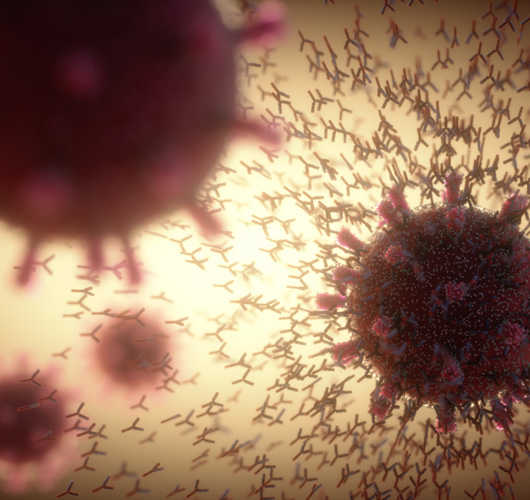Monoclonal antibodies have higher safety and efficacy due to the clear target and specific mechanism of action and have been testified with good results in various diseases, such as cancer, transplant rejection, autoimmune, and infectious diseases. However, monoclonal antibodies can also be recognized as foreign substances by the receptor to trigger adverse immune reactions and thereby anti-drug antibodies. This makes anti-drug antibody assays indispensable in antibody-based therapy discovery. Creative Biolabs is an expert in the field of antibodies. Based on our advanced antibody development platforms (e.g., hybridoma platform and phage display platform), we provide comprehensive services to support the development of antibodies, such as custom antibody production and anti-drug antibody assays.

Monoclonal antibodies generated based on technologies such as hybridoma platforms and phage display platforms have brought new strategies to address disease issue. More than 70 monoclonal antibodies are already available for clinical use, with hundreds more in clinical development. Yet monoclonal antibodies still have drawbacks, such anti-drug antibodies that can alter the pharmacokinetics, pharmacodynamics, efficacy, and safety of the drug and may cause additional side effects. The production of anti-drug antibodies involve varieties of factors, such as the host's genetic and immune status, mAb structure, dose, and the route of administration. In general, anti-drug antibodies can produce side effects and cause primary or secondary drug resistance, accounting for a critical barrier to move the candidate drugs from animal models to clinical trials.
The detection of anti-drug antibodies is particularly important in mAb treatment. In general, in the detection of anti-drug antibodies, we need to focus on positive control antibodies, negative control antibodies, cut-off value, sensitivity, precision, specificity, selectivity, hook effect, and other items. In addition, attention should be paid to the reproducibility, method, and sample stability. In practical research, one or several methods can be flexibly combined according to specific needs. Currently, ELISA and MSD techniques are the most commonly used. The detection of anti-drug antibodies mainly includes screening assays, confirmatory assays, titer assays, and neutralization assays. Screening tests, also called antibody binding tests, are used to detect all antibodies that can bind to a protein drug. This is the first step in anti-drug antibody detection. Secondly, the confirmatory test is to confirm the specificity of the binding antibody by adding protein drug competition. The intensity of ADA production was then determined by a titer test. Finally, neutralization tests are primarily used to identify neutralizing antibodies. The process is screened using a sensitive immunoreactivity assay and confirmed using an immunoreactivity assay with high specificity to characterize ADA by assessing the neutralizing ability of antibodies. In general, we recommend the use of cell-based assays.
Based on our extensive practical experience, Creative Biolabs is happy to share with you the key points and experience of anti-drug antibody production and application to help your project run smoothly.
All listed services and products are For Research Use Only. Do Not use in any diagnostic or therapeutic applications.